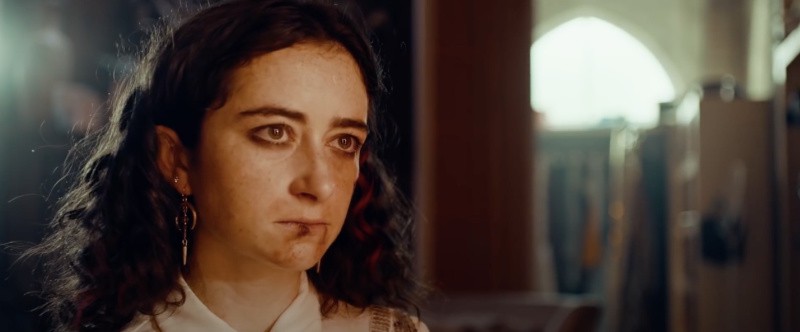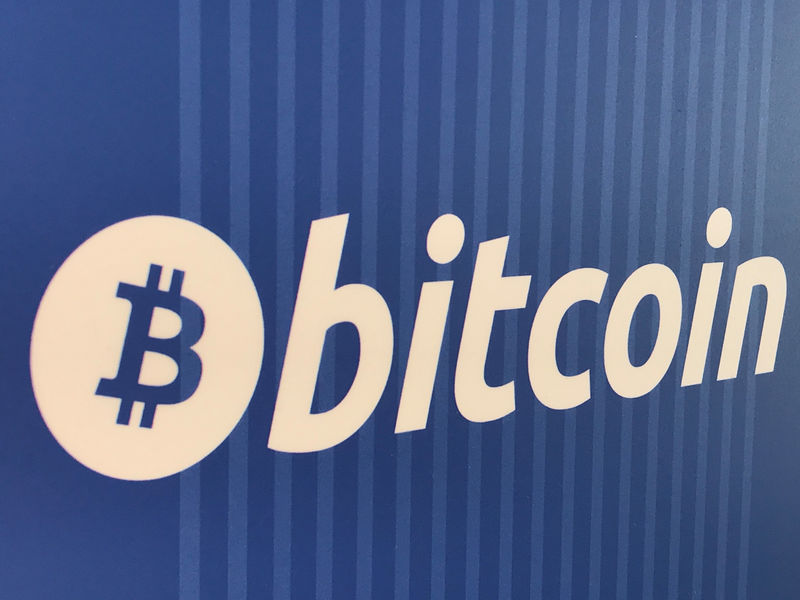Intro. [Recording date: January 4, 2024.]
Russ Roberts: Today is January 4th, 2024, and my guest is author Brian Klaas of University College London, where he is an associate professor of global politics. His latest book, which is our topic for today, is Fluke: Chance, Chaos, and Why Everything We Do Matters. Brian, welcome to EconTalk.
Brian Klaas: Thanks for having me on the show.
Russ Roberts: I want to remind listeners to go to EconTalk.org, where you can vote on your favorite episodes of 2023. Thank you.
Russ Roberts: And now, Brian. You open your book with two remarkable stories. One is about Henry Stimson, and one is about yourself. Let’s start with the Stimson story and how it illustrates the idea behind your book.
Brian Klaas: Yeah. So, the Stimson story starts with a vacation in 1926 to Kyoto, Japan, and it’s a couple, Mr. and Mrs. H.L Stimson, who go on this vacation and just fall in love with the city. And, this is relevant, because 19 years later, the husband in the couple, Henry Stimson, ends up being America’s Secretary of War, who’s overseeing the Targeting Committee, which is tasked with deciding where to drop the first atomic bomb to end World War II. And, all of the generals, all the people on the Targeting Committee, basically agree that Kyoto should be destroyed, but Stimson and his wife like Kyoto. So, twice, he intervenes with President Truman to get Kyoto taken off the targeting list.
And so the reason why–the immediate reason why–the first bomb was dropped in Hiroshima is effectively because a couple that happened to be in the right place and right time 19 years later, took a vacation there in 1926.
And, the reason I opened the book with that is because I think it illustrates how very small changes–decisions about where to vacation two decades earlier–can cause the deaths of a hundred thousand people in one city rather than another.
And, that’s the idea behind the book: is that there’s a lot of randomness, chance, chaos, and contingency that diverts our lives and our societies more than we often think it does.
Russ Roberts: And, for completeness, because I found this also quite interesting, the targeting of Nagasaki, the second city that the atomic bomb was dropped on, also had a fluke aspect to it.
Brian Klaas: Yeah. So, this is where the other city that was chosen for the bombing on August 9th, 1945, it was called Kokura. And, the reason why the bomb ended up being dropped on Nagasaki instead was because of brief cloud cover over Kokura.
So, they thought there were forecasted clear skies. They sent the bomber up. These brief clouds flit across at just the right time. It obscures the bomb site, and they don’t want to accidentally drop the second atomic bomb in history not on the target. So, they decide to go to Nagasaki instead. And so, even in Japan to this day, people say ‘Kokura’s luck’ refers to unknowingly escaping disaster.
And this is–one of the other themes in Fluke is that we often think about the sort of chance, contingent events that divert our lives or our societies, a lot of the time, we’re unaware of them. And, in Kokura, they would not have been aware, until much later, that their city was almost incinerated, except for a cloud.
Russ Roberts: And now, tell the second story. As dramatic as those are and thought provoking, the second one might be even more so. Go ahead.
Brian Klaas: Yeah. So, this story starts in 1905 in a little farmhouse in Jamestown, Wisconsin. And, it’s basically the story of a woman who has four young children at home and snaps. She has a mental breakdown. We’d probably call it postpartum depression today, but of course, in 1905, they weren’t making those diagnoses. And, tragically, she decided to kill her four children and then, take her own life. And, her husband comes home after a day on the farm and discovers his whole family dead. Right? All four kids and his wife.
And, the reason I put this in the book is because this is my great grandfather’s first wife, and he[?] remarried to what was my great-grandmother.
Now, I had no idea this story existed until I was in my twenties. And, my dad sort of sat me down and showed me this newspaper clipping. The headline was, ‘Terrible, active, insane woman,’ from the 1905 newspaper. And, I had this realization, and maybe subconsciously–this is one of the origin stories of this book–but I had this realization that, but for that mass murder, I don’t exist. Right?
And, not just that, but I don’t talk to you. No one is hearing my voice, unless there is this mass murder in 1905.
And so, what I start thinking about–this informs of my social science research, but also my philosophy towards life and so on–is that you start to realize that, when you actually unpick causality, there are just these series of things back and back and back in history, that, if they were slightly different, the world would be radically and profoundly changed. And, I am a living testament to that, because the only reason I exist is because of a mass murder, 118 years, 119 years ago in Wisconsin.
Russ Roberts: And, what’s the lesson of that? You mentioned both social science and your own life. And of course, the book alternates between these two perspectives, how we should look at the world trying to understand it, which is the social science part. And, then, the second part is, how should we live? And, we’ll be, I’m sure, talking about both of those. But, start with that. How should this affect the way we think about social science?
Brian Klaas: Well, I think, when you think about how we try to understand the world, we model it. Right? And all of us started modeling it with this idea that we understood–I mean, it was obvious–that this is not the real world. This is a crude, sort of funhouse, mirror reflection of it.
And, what I think has happened along the way is we’ve gotten so consumed with modeling that we’ve forgotten how reality actually works.
And so, when you think about trying to model, for example, why did the United States drop the atomic bomb on Hiroshima instead of, say, Kyoto? If you were trying to identify variables in a model to choose, the vacation histories of various U.S. government officials would be like 10 millionth on the list that would come to mind. Right? It would be so far down the list.
And yet, in that instance, it was the main cause. It was the main diversion at the last minute that diverted the bomb from its intended target of Kyoto to Hiroshima.
And the same is true–you know, when I think about my own life history–I think we have all these sort of neat and tidy stories we tell about our lives. We made good decisions. We take credit for wise choices and so on.
And yet, I think that not only do we sometimes lose sight of the fact that there’s all these contingent moments that could have turned our lives differently, but more profoundly than that, there’s unknown moments. Right? I sort of say, the invisible pivots in life.
And that’s because, until I was 20 something years old, I had no idea I was the byproduct of a mass murder. And so, I lived in my life with that ignorance, and that was fine. But it meant that I didn’t understand the actual trajectory of my life history, because I didn’t have the information necessary.
And so, I think this is the kind of stuff where, when you think about Social Science and we try to understand social change, most of us are actually pretty good at doing this with our own lives. Right? We think about those pivot points. We can’t think about the invisible ones, because we can’t know they existed. Right? But we think about the ones, ‘Oh, if I had just turned left instead of right, I might not have met my spouse,’ or, ‘I might have gone to a different college,’ or whatever it is.
When we start to model the world, all that just flies out the window. And it makes sense, right? It’s a pragmatic choice.
But I think it has reflected back on us a false image of how the world actually works.
So, the idea of the book is to say: Okay, if all these small contingent events add up to profoundly different societies and also diverted lives, then everything that we do is constantly reshaping the future. And that’s why the third part of the subtitle is Why Everything We Do Matters. Because I believe that even these small chance and seemingly insignificant events do reshape history in profound ways.
Russ Roberts: Well, let’s think about the social science part for a minute. One conclusion you could draw from your book–and you mentioned this as a possibility; you reject it, but it wasn’t so clear to me why you do reject it–we can’t really understand the world. One response to these kind of observations would be there’s an infinite number of variables. We can never control for them statistically in any significant way, useful way, meaningful way. And there’s an enormous random element in both history and our lives.
And, I think most of us would say that’s true about our lives. But we have, I think, trouble–certainly as a trained social scientist in economics, it’s troubling to think that, while we know that our models are simplified, and even sometimes the point of being simplistic, the idea that we cannot understand the world–because of its randomness, because of the influence of small things that are unobservable–does suggest a very pessimistic view of social science. Now, you say explicitly, I think in the book, that that would be a wrong conclusion to draw. So try to walk me through that nuance.
Brian Klaas: Yeah. So, I think that modeling is–I agree completely with the statement that all models are wrong, but some are useful, right? But I think there’s questions about whether there can be models that are harmful.
So, models that are useful are ones that are trying to tease out aggregate patterns that may or may not hold true in the present moment based on past data. Right?
I think you get into trouble where you try to model the future from past data, if the world has actually changed. The problem of non-stationarity, where you’re actually modeling a different world from the one that the data you collected previously existed.
But, I also think you get into trouble when you start to model things that are part of the realm of what Mervyn King, the former Governor of the Bank of England, calls Radical Uncertainty, where literally, no matter what you do, you cannot understand it very effectively.
And one example they [John Kay and Mervyn King in their book titled Radical Uncertainty–Econlib Ed.] use, which I bring into the book, is whether or not it’s a good idea for Barack Obama to order the raid to kill Osama bin Laden in 2011. And, the point was that all the probabilistic estimates, all the forecasts they could make, they didn’t have the information they needed, which is: Was he there? Would the raid work? And would the Pakistani government attack the U.S. Special Forces if they discovered them in time? Right? And, they had no–there was no data points for this. It had never happened before. Right? You could look at all the data from SEAL [Sea, Air, and Land] Team 6’s success stories in the past, but that doesn’t actually tell you anything you don’t know already. Which is just: they’re very effective. But, you still don’t know whether it’s a good idea to go there. You don’t know if the guy is actually there, etc. It’s radical uncertainty. There’s no information you have that can inform the choice.
Now, this is where I split the world into problems that are must-answer problems from the ones that need-not-answer problems. Right?
The must-answer problems are–you know, you’ve got a health problem and you need to treat it because you’re dying. You can’t just, say, throw up your hands and say, ‘Oh, it’s radical uncertainty. We don’t know what this rare disease is. Let’s just let you die.’ The same way that Obama had to make a decision.
But, I think there are problems that we forecast, which we don’t need to. I mean, why do we forecast what Burundi’s economic growth is going to be in 2030? I mean, we don’t know. It’s impossible. Right?
And, I think what is the problem with the latter kind of modeling is that it creates a hubris that I think is dangerous, because when you reflect the world that is swayed by randomness, chance, and contingency, back at you, as this neat and tidy set of models, you start to think you can control it. Right?
Because if the world actually was five or six variables that create this causal outcome that you understand, then you’re going to play with the world in ways that you sort of think you can control.
And so, one of the aspects of why I’m writing this: One is just the philosophy of how the world works is interesting and important to understand.
But, in terms of pragmatic advice, it’s to say, let’s think carefully about whether we actually have reached our limits on some of these areas. And, if we have, we should have less appetite for optimization, more appetite for experimentation, and more appetite for resilience. Right?
So, it’s how you interpret the results of a more uncertain world, that causes you to make wiser decisions and avoid catastrophe, basically, by the hubris of certainty that’s embedded in some flawed models.
Russ Roberts: So, I’m a big fan of humility in the face of hubris and certainly humility about the reliability of empirical work. You tell the rather remarkable story of the attempt to measure–76 teams were given the same data on the impact of, what was it, immigration on–
Brian Klaas: Social support safety net programs.
Russ Roberts: Right. Excuse me. And whether the size of the immigrant population affected the political support for safety net that would benefit immigrants, who, quote, “weren’t like you” possibly. Tell what happened in that study. I had not seen that. It’s in 2022, I think.
Brian Klaas: Yeah. So, to me, I hope that more people come across this study, because of my book, because it’s excellent, excellent research. And, to me, this is the kind of study that should have the ripple effects that the replication crisis had a little over a decade ago.
So, basically, what they do is they send out 76 research teams who are not in communication with each other. They give them the exact same data. They say, ‘Here’s the data to work with, and we all need to answer this empirical question of: Does an increase in immigration basically cause a change in support levels for the social safety net?’
Now, what they found–all these different teams used different methodologies. They plotted every single choice they made, methodologically, said exactly what they were doing, etc., but they didn’t communicate with each other. So, there’s no group-think. Come up with 76 different ways to model the data.
And what they found was about half of the teams, roughly speaking, found a null result–no effect. Or at least they could not discern an effect statistically from the data. Roughly a quarter of the teams found a positive effect, and roughly a quarter of the teams found a negative effect, both of them being statistically significant.
Now, this shakes my faith in social science profoundly, because the problem is that, normally, when social research is done, one team does this and they pick their own data. They’re not taking data that’s ready-made and sort of hand-fed to them. They’re making choices already about which data to use, what to include, and what not to. But, when they had the same data, there was still almost an even split between positive and negative results on this.
And, most of the time, what would happen is, if you got a null result, a lot of people would not publish it. Publication bias is a real problem. If they got a positive result, they would publish it; and it would become the accepted wisdom, if it was in a top-tier journal, that there was a positive effect. If they got a negative result, they would publish it in a top-tier journal, and there would be the accepted wisdom that there was a negative effect. And then, there might be years upon years where not only was this viewed as settled research, but that people made policy based on it.
And then, at some point, somebody else would come up with a new study, probably using different data, and maybe get a different result. And so, the ‘Universe of Uncertainty’ paper, which is what this one is called, to me, it signals what I call the hard problem of social research, that: even when you control the data, even when you try to plot the methodological choices and try to keep them in the realm of responsible methodologies, you get a scattershot result.
And, that worries me. It’s something where I think it shakes the faith that we should have in the idea that a single study can establish definitively whether something is true or false in social dynamics.
Russ Roberts: Or five studies, if they all happen to be agreeing and they all happen to be on one of those quarter that found one side or the other. The phrase, ‘Studies show,’ is a phrase that I can no longer hear and just let it go by, mentally at least. I don’t always say something.
But, if it’s any comfort, Brian, I think there’d be–I’ve never seen a study done on the following: Does social science research actually affect public policy? Social scientists like to think it does, but I have a feeling that, most of the time, politicians, it’s an after-the-fact ex-post comfort for them to wave around something that they claim helps to show whatever they’re doing. But, it’s not obvious that social science has much effect.
Now, I don’t think that’s literally true. Keynes’s famous quote about listening to madmen is, I think, relevant. I think there are, every once in a while, intellectual movements and books and insights that do affect the course of the world.
But, sometimes I think we’re just over here in this sandbox over here, this group of young children of an older age playing with statistical packages. So, I share your unease that this can lead to overconfidence about the impact of, say, X on Y, but maybe it’s not as big as we worry about.
Brian Klaas: I think that’s definitely true, by the way, for my realm of political science. I don’t think that we sway policy as much as we like to pretend we do.
And, I think some of that, by the way, is because of some of the flaws that I suggest. I mean, I think there are some aspects of social science that could be improved. And, if they were, then maybe people would put more faith in our research.
But, it’s still very worthwhile to do. I’m not trying to say we throw the baby out with the bathwater. It’s still worth trying to understand the world, and social science is our best tool to do that. So, even though I have what I think is a rather provocative chapter title, “The Emperor’s New Equations,” for that chapter, I actually very much believe in the mission of social science. I just think that we need to improve how we do it.
Russ Roberts: Yeah, I’m more cynical than you, but that’s okay. We’ll save that for another conversation.
Russ Roberts: Talk about–one way to organize one’s thinking about this that you use is, which I really like, is contingency versus convergence. Talk about those two terms and how they illuminate these issues.
Brian Klaas: So one of the joys–this book was so fun to research, because I really went down the rabbit hole of evolutionary biology, which is–it’s an historical science. It shows us how change happens over time and how trajectories shape future pathways.
And so, the contingency versus convergence are very easy to understand in evolutionary terms. The best example of contingency is the asteroid that wiped out the dinosaurs and gave rise to the mammals. Right? Because if the asteroid had been delayed by a few seconds, you probably wouldn’t have had the mass extinction events of the dinosaurs. Mammals might not have become dominant, and humans probably wouldn’t exist. So, a span of a couple seconds, 60 plus million years ago–if that had been different, humanity probably wouldn’t exist. So, that’s contingency. It’s where very small changes can create profound effects.
Convergence is the sort of idea that things happen according to patterns that are relatively stable and ordered, because there are pressures on them.
So, in evolutionary terms, for example–I love this example–if you look at an octopus eye and you look at a human eye, they’re extremely similar, and they’ve been evolving on separate lineages for the better part of 400-plus million years. And the reason that happened is just because there’s only so many ways that vision can work, and the human eye is one example of a very effective way that vision can work. So, when nature accidentally stumbled across this sort of solution to a problem of how to navigate the world, it stuck. And so, convergence is basically this sort of more ordered viewpoint of the world.
And, I think, by the way, that social science mostly lives within the convergent worldview. And, contingency is the worldview that small changes can throw things up that radically divert history and the course of human social change and so on.
So, I also like to use it in our own lives. So, contingency would be the idea of, like, a snooze button, where you decide it’s a Monday morning and you’re tired; you slap the snooze button and sleep for five more minutes. If your life unfolds basically the same way as it would if you didn’t hit the snooze button, then that would be a convergent pathway. Right? It didn’t really matter. If your life changes, because you get in a car accident, for example, or something shifts–
Russ Roberts: Or you avoid one–
Brian Klaas: Yes, exactly. Exactly. So, that’s a contingent event.
So, it’s in a framework that’s both applicable for our lives and for our societies.
Russ Roberts: I thought you have a really nice example in there in the book about thinking about history, and we can think about fundamental trends that are inexorable or whether individuals, through their own actions, can offset those trends or create different ones. And, you have this thought experiment, which is–it’s not yours–it’s a thought-provoking, though, thought experiment of: If you could kill Hitler as an infant, would you? So, talk about why that’s trickier than it might seem.
Brian Klaas: Yeah. So this is like Philosophy 101. There’s this sort of question of: Would you kill baby Hitler? And, it’s supposed to be a thought experiment to figure out your views on utilitarianism. Would you kill a baby in order to save millions and millions of people?
And, the reason why I include it is because that thought experiment actually pivots much more, to me, on your views about historical causality and how the role of individuals may or may not play a role in diverting trajectories.
So, if you have a highly convergent worldview where you think the sort of rails of life are not diverted by individuals, then the baby Hitler question is actually one that doesn’t affect the outcome of history. Right? Because you figure, ‘Well, the structural factors for Nazi Germany to emerge were there.’ And, so, if it hadn’t been Hitler, somebody else would have done it, and therefore, there’s no reason to violate your Kantian ethics and kill baby Hitler.
On the other hand, if you think that small changes can have profound effects–and of course, Hitler is not a small change; he’s an enormous change–then the contingency worldview would say, ‘Okay, killing baby Hitler would radically change the course of history and may also make it much, much better. Save the lives of millions of people for this one baby.’
So, it’s that kind of question.
There was a book written by Stephen Fry, who sort of imagined this world in which, actually, Hitler was never born, but the outcome of Nazi Germany was worse. Now, this is very hard to imagine, but the premise of the book is that the person who ends up becoming the leader of what was effectively a Nazi-style regime was actually more disciplined than Hitler. And, so, they acquired the atomic bomb sooner, and they won the war. Right?
So, the point that I’m bringing in is not to comment on the various virtues of killing or not killing baby Hitler. It’s to say that the way that those questions actually should pivot in our minds is based on whether we believe that individuals drive history or whether trends drive history. And, I’m of the view that individuals can very much drive history, because I think much smaller effects change history, as you see with the Kyoto and Hiroshima example. So, surely, if a different person was in charge, I do think it would divert history.
Russ Roberts: Go back to the snooze button for a minute. And I think most people intuitively believe, whether they’re right or wrong, give or take–most people intuitively believe that: Snooze-button-type things rarely derail the path of my life. Sleeping in for a few minutes here or there, stopping to eat at the buffet rather than having a sit-down dinner I was planning, having a drink–not sure whether I should have a drink before I go to bed, a scotch. So, I have on one night, not on another. Maybe I wake up with a slightly thicker head, foggier morning, the next morning. And it’s, of course, possible that, because of that, my presentation is awful; and I get fired: I become a drug addict, homeless, fill-in-the-blank. Or, I’m fired, and, it turns out I find an incredible job that I wouldn’t have even thought to look for.
So, life is full, obviously, of some random events.
But I think most people would say that those are rare. That they’re not the–I’ll say it a different way–this convergence and contingency in our daily lives, there are many broad patterns that persist, regardless of small choices or interactions we have with the world or with others. And, there’s many that are serendipitous, both for good and for bad, and we don’t know what those are.
Brian Klaas: Yeah. So basically, I agree with you that most people think about the world this way, right?
And the way that I would sort of counteract that is by bringing up–I have this in the introduction of Fluke–but it’s this example where I say, ‘You know, everybody sort of intuitively accepts this notion that, if you were to travel back in time: don’t change anything. Don’t squish the wrong bug, be very careful, because you might accidentally change the future in such a way that you get deleted out of the present.’ Right?
Russ Roberts: And, there’s a Ray Bradbury short story, we’ll link to, if we can, called the “Sound of Thunder,” that’s magnificent, that deals with this.
Brian Klaas: Exactly. And, The Simpsons also riff on this idea off the Bradbury story.
And so, I think most of us sort of intuitively think, ‘Yeah, okay,’ like, ‘Fair enough.’ That’s probably good advice. Like, if you do squish the wrong bug, if you travel back 800 years or 2 million years in history, you might actually change the future of the species or your own life.
And, we don’t think about that in the present. But, of course, historical causality doesn’t change: whether it’s past or present, it’s the same thing. So, if squishing a bug in the past can divert the trajectory of history in the future, then surely squishing a bug in the present can divert the future as well.
Now, what I would say in the more realistic world of our lives is that we just simply are blind to this. I think that you’re right that it’s very hard for us to discern these, and our brains have evolved to make pattern detection the prime aspect of what we do cognitively. So, we overlook a lot of this stuff.
But, just examples, like: I’ve had situations–I’m sure you have–where somebody makes an off-handed remark that has stuck with me, either a profound witticism or sort of a cutting jab that really made me feel bad. That person has no idea what it’s done, but maybe it put me in a bad mood. Maybe then I snap at somebody else. There’s ripple effects that happen even on the tiniest things. When you hit the snooze button, you meet different people that day. Right? When you meet the person who becomes your best friend in your life, a series of things had to happen for that exact occurrence to take place. Right?
Now, you might say there’s convergence because you were going to end up at the same school or whatever it was, but I think the ultimate contingency is where this becomes crystal clear is when we start to think about which humans get produced. Because, without going into graphic detail, the exact moment of when a baby is made, if it’s a microsecond difference, a different human is born. Right? And so, it’s obvious that, in that day, even slight variations are going to affect which person is born. But, if you keep going back, why do you end up on that exact date in that exact situation? Well, it’s a series of events that each have an infinite regress basically back to the beginning of your life.
So, my view of historic causality is actually that–when I say everything we do matters, I’m not trying to make some cute statements about we should care about ourselves. I literally think that everything that we do affects the shape of the world in some way. We’re blind to how it’s diverting the future of our trajectories.
Russ Roberts: And I think that’s a very beautiful idea. Of course, most of the time, we don’t know what that direction will be. If I’m having a bad day and I struggle to overcome it, and I fail, and I snap at someone, that puts them in a bad mood and that has these ripple effects you’re talking about. And, it is possible that, by snapping at them, I cause them to reflect on their own lives in a positive way. But most of the time, we would argue that that’s bad–that, snapping at people, being rude, arrogant, pushy, obnoxious, self-centered–that produces bad ripples. The challenge, of course, is, is that many of these small things that do make a difference, we don’t know how they make a difference.
So, the snooze button’s a good idea. Now, whether I push the snooze button, if I push it, I may meet–encounter is maybe a better word–different people along the way on my, say, bus ride or walk to work, or whatever thoughts I’m going to have and so on are all going to be different. They might be good, they might be bad. I have no idea. It is a bad idea to push the button eight times every morning, because you’ll eventually waste large chunks of your life maybe, and maybe lose your job if you’re constantly late.
But, I think I would want to make a distinction between things that–because we are all connected, I have an idea of causation, even though it’s imperfect. As I said, sometimes what seems like good behavior could lead to bad outcomes, or vice versa. But, most of the time, I have a theory about those ripple effects, and many times, I don’t. And, the ones that don’t are relatively, I would say, they have impact, but they don’t guide my life, because I can’t anticipate them.
Brian Klaas: Yeah. So, that’s a perfect encapsulation, because I think you have to differentiate between how the world works and how we should live within it. Right?
So, I think that how the world works shows that these ripple effects are interconnected. And this means–I find this a profoundly moving idea–that all of our best moments in life are inextricably intertwined with all of our worst moments in life. And the way I explain that is to say: I am quite literally the byproduct of a gruesome mass murder, one of the most horrific things that happened that year in Wisconsin, these four young children. Everything good in my life is directly derived from that. My life is directly derived from that. Every positive impact I’ve made is directly derived from that. So, this horrible event had these consequences that I find–subjectively–very, very positive. Now, that doesn’t mean you should go out and mass-murder people and hope that it produces good effects. Right?
So, because there is no way to anticipate the invisible ripples, we should live according to basically a code of ethics, trying to be decent to each other. But, sometimes, people doing horrible things does produce very good outcomes. Sometimes, people doing really good things produces terrible outcomes. This is obvious. But, I think that there’s something that’s still valuable, at least in the way that we process how our lives work–and also, think about social change–in understanding that there is no free lunch: There’s no action that doesn’t have an impact.
And I think, once you start thinking that way, you start to view yourself slightly differently in a way that can be very helpful for people who are thinking about their lives and are going through, for example, a very dark time. You think: Okay, well, quite literally, in my view of causality, that dark time is the cause of all the good times that are going to come. Now, if it were different, you would have a different life. Now, some of it might be better, some of it might be worse, but that sort of interconnection and unbroken strands of causality, I think, is something that can sometimes be comforting when terrible things are happening.
Russ Roberts: Well, you have a concept you mentioned–I don’t know if it’s Nietzsche’s concept or whether he was using it from other folks–which I think is very provocative. It’s very relevant to some things I’m thinking about these days. It’s the idea of amor fati–I don’t know how to pronounce it–it means love of one’s fate.
So, if we look back, and my favorite example of this is– I won’t spoil the story–but I think it’s called “The Story of Your Life,” by Ted Chiang. It’s a short story that deals with this question, and it’s a magnificent story. He uses the basis for the movie Arrival, a movie I didn’t particularly care for; but the story that it’s based on love beyond words. The idea is that: If you look back on your own life and you see all the mistakes you made or the cruelties you endured–in your case, it’s a cruelty that happened before your birth that enabled you to be here–but if we think back on those things, often, we’re tempted to regret them. We say, ‘I wish I hadn’t done X,’ or, ‘I wish that person hadn’t done Y to me, because I was traumatized, brutalized by it.’ But, there is a tendency, I think, in the human heart–and I think religious people think about this differently, but if you’re not religious, there’s still a strong tendency in the human heart–to say, ‘Well, if that bad event hadn’t occurred, I wouldn’t be me.’
And I realize–and this is, I think, the profound part of your book–I realize that who I am in this moment and my outlook and my sense of self, my consciousness of self, that’s the product of all these thousands of small things. Absolutely. And, I can’t pluck out one of them by itself–and you use the idea of a thread–I can’t pull one thread out and leave the rest of the cloth of the fabric unchanged, so I just didn’t have to suffer from that moment, say, of humiliation in seventh grade or the terrible decision I made to do XYZ on vacation, that caused me weeks of pain and I lost a friend, etc., etc.
I love the idea that those things should change, but when I face the reality of confronting the fact that, if I change any one of those, that butterfly stepped on back 70 years ago, it was 55 years ago, I won’t be me.
And, I think that’s probably a fallacy, but I think it’s a very human way that we think about our lives. By the way, it’s not a fallacy, rationally. I wouldn’t be me: the idea that I’ve embraced it–the amor, the love of fati, of my fate–that is, I think, it might be a fallacy, but I think it’s incredibly human for us to cope with that suffering we’ve endured.
Brian Klaas: Yeah. So, I don’t think it’s a fallacy. I think it’s quite literally true. I think that, if anything different had happened in your life, you would be a different person.
Russ Roberts: Well, that’s true.
Brian Klaas: And I think that this is–it’s applying chaos theory. It’s not to say that you’d be a completely different person. It’s not like you have no genetic makeup, no character or personality. But some things would be different about you. And, you would be different in this moment, right?
And this–to me, it’s just applying chaos theory to humans. Chaos theory is a pretty effective and validated scientific theory, and it shows that many complex systems–which I would include the human mind as well as human society–are sensitive to initial conditions, and slight changes in those initial conditions going forward in time can create profound effects.
The origin of chaos theory is the weather. And of course, we intuit this when we think, why isn’t the weatherman making a forecast ten days in the future? It’s because tiny fluctuations can create totally different weather systems.
I think that’s the same for humans. And, I think, actually, there’s a difference here between what’s socially useful in a sort of aggregation and what’s individually useful for processing terrible things that happen to us. [More to come, 35:19]
















